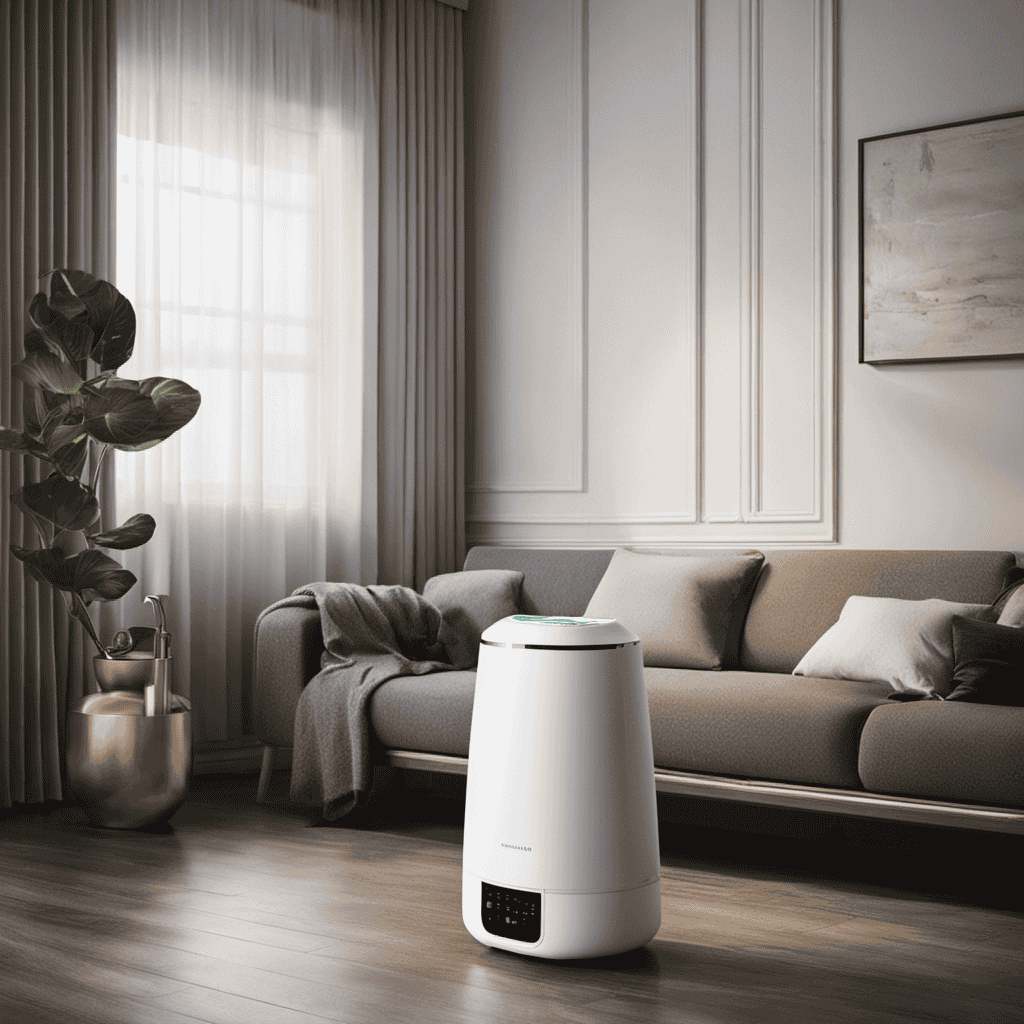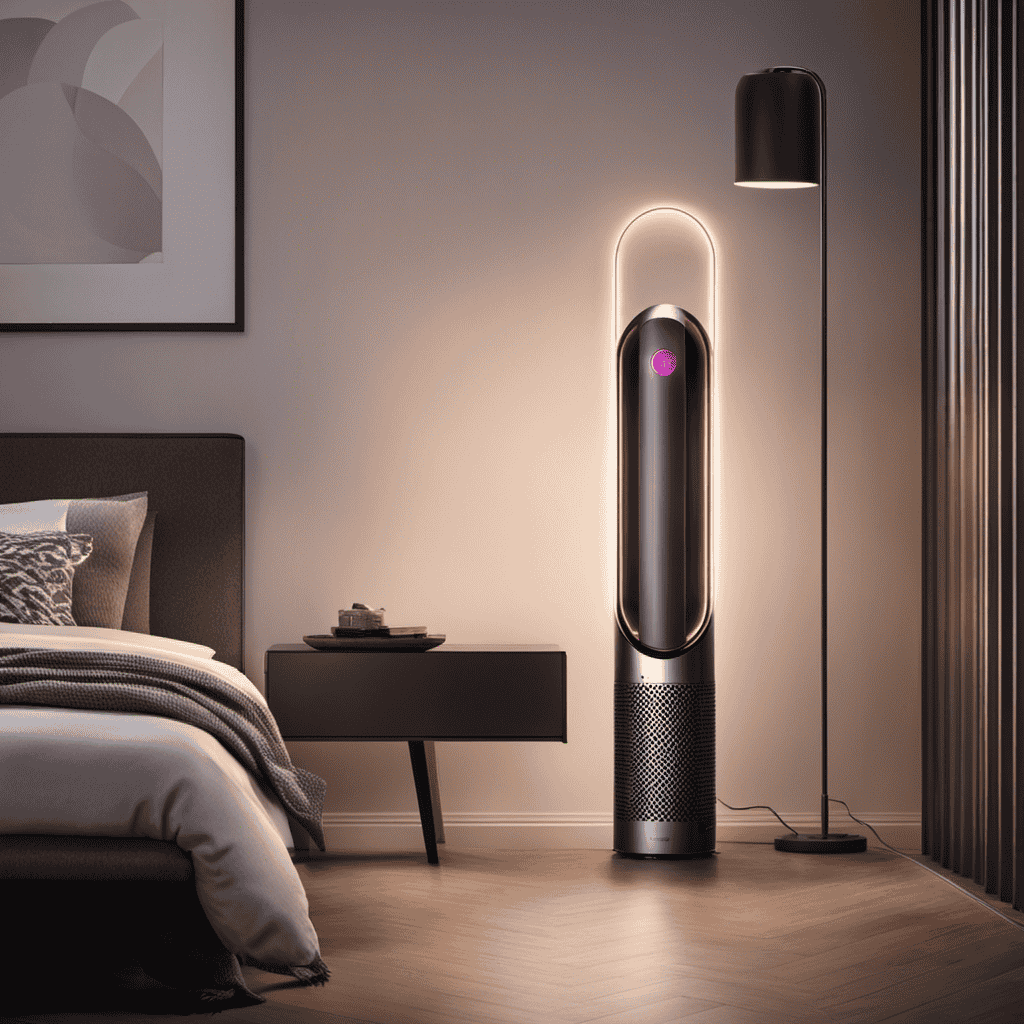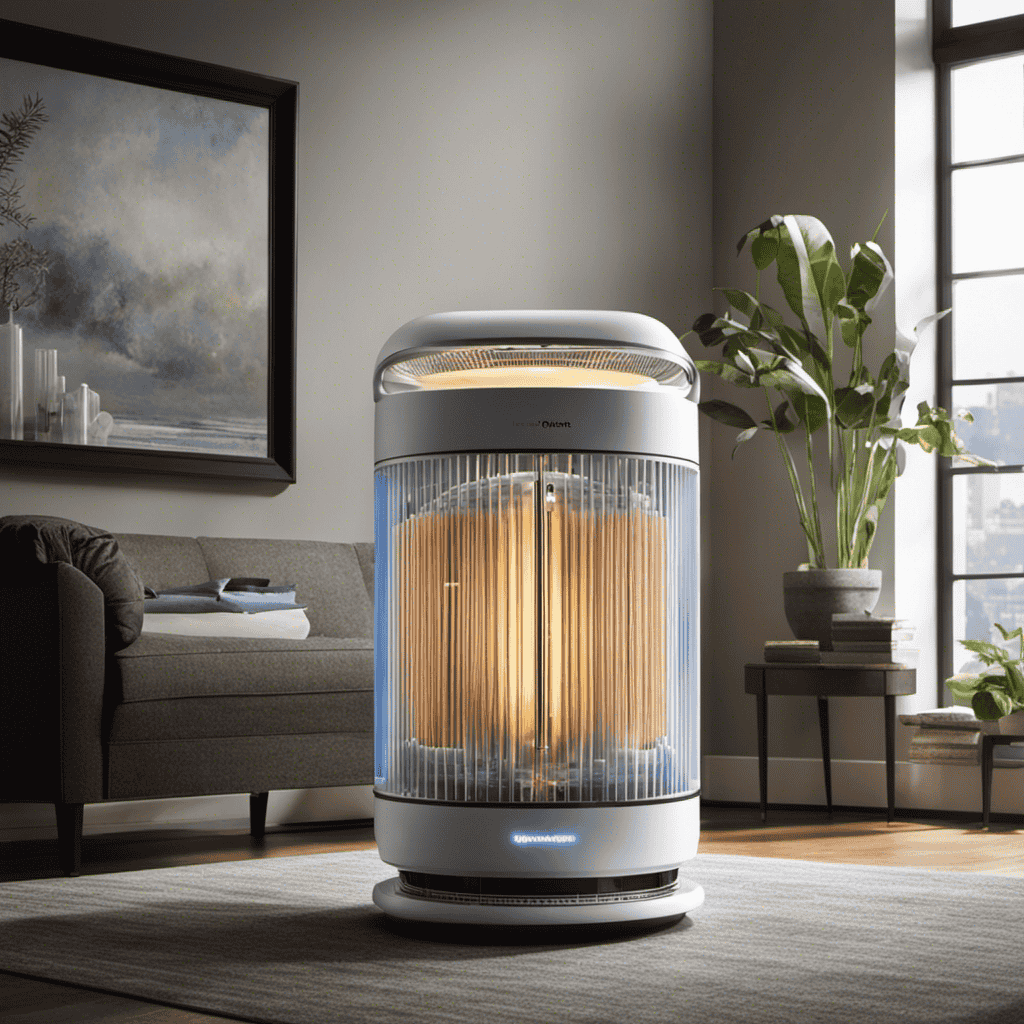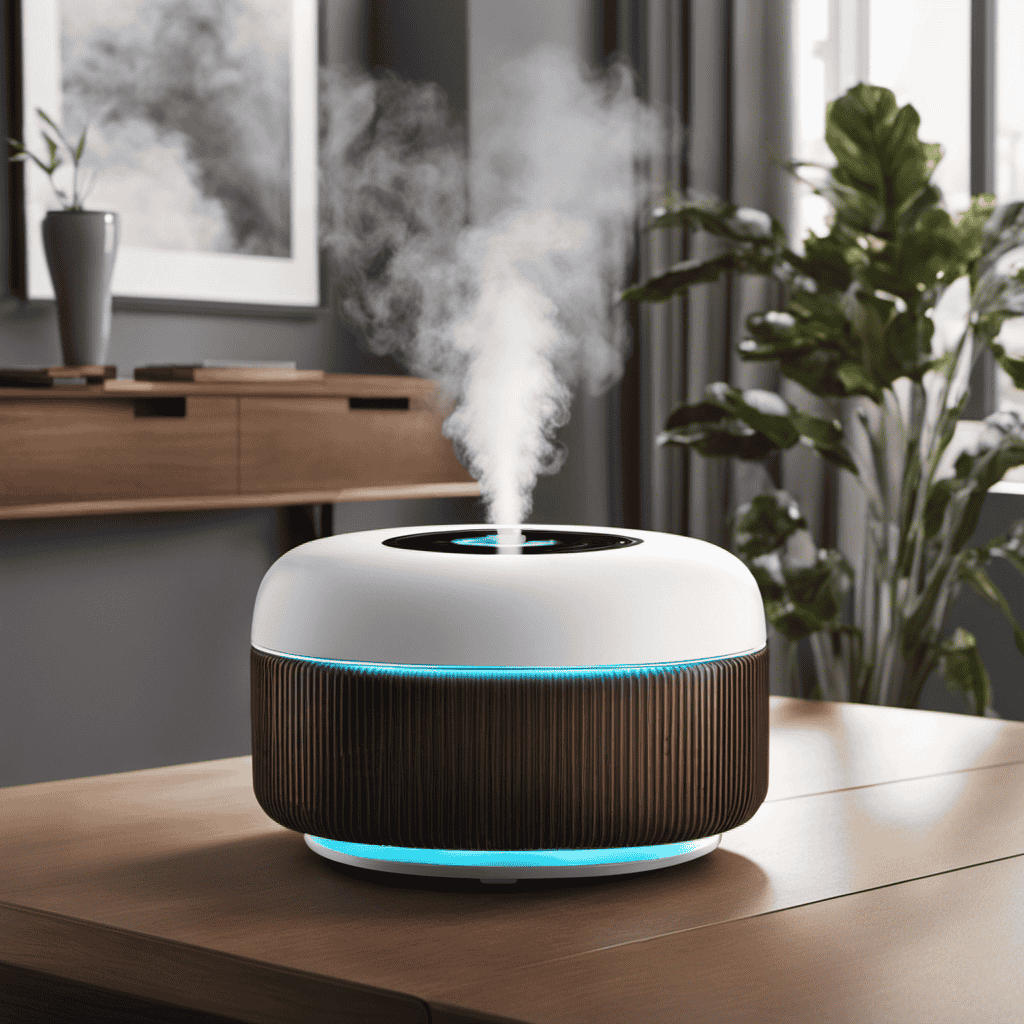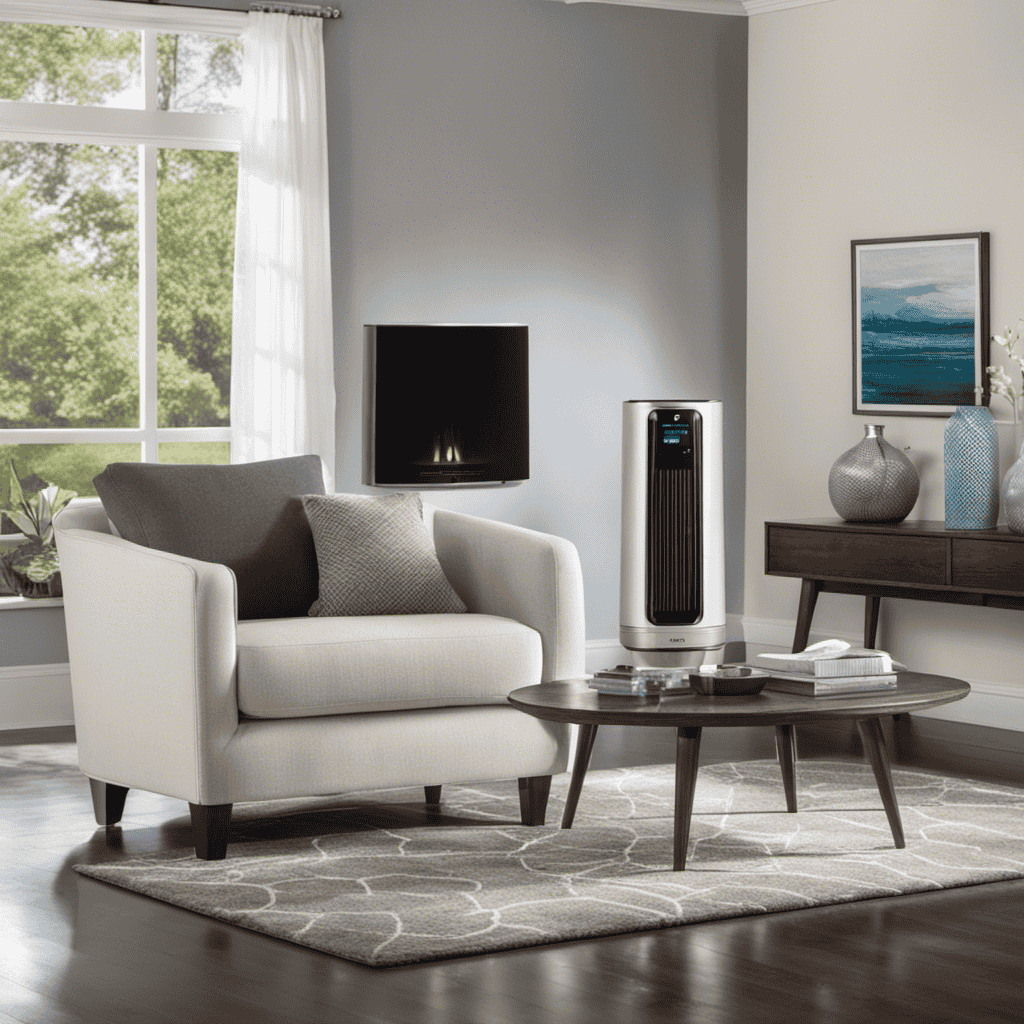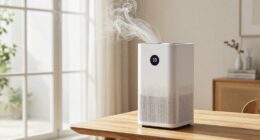As someone who has asthma, I frequently ponder whether a humidifier or an air purifier would be more effective in controlling my condition.
The importance of indoor air quality cannot be overstated when it comes to asthma management.
In this article, we will explore the role of both humidifiers and air purifiers in treating asthma, the benefits they offer, and factors to consider when choosing between the two.
By combining these devices, we can achieve optimal control over our asthma symptoms.
Key Takeaways
- Indoor air quality greatly impacts asthma management
- Humidifiers add moisture to the air and help alleviate coughing, wheezing, and shortness of breath
- Air purifiers remove allergens from the air and improve overall air quality in the home
- Combining a humidifier and air purifier creates an environment that promotes better respiratory health and reduces asthma attacks
The Importance of Indoor Air Quality for Asthma Management
If you have asthma, it’s important for you to prioritize indoor air quality as it can greatly impact your management of the condition.
Improving ventilation and reducing allergens are crucial steps in creating a healthier environment for individuals with asthma. Proper ventilation helps to remove and dilute indoor air pollutants, such as dust mites, pet dander, and mold spores, which can trigger asthma symptoms.
By increasing the flow of fresh air and reducing the concentration of these allergens, you can significantly improve the air quality in your home. This can lead to a reduction in asthma attacks and improved overall respiratory health.
Understanding the role of humidifiers in asthma treatment is another important aspect of managing the condition effectively.
Understanding the Role of Humidifiers in Asthma Treatment
Understanding how humidifiers can help in managing asthma symptoms is essential.
Humidifiers add moisture to the air, which can provide relief for individuals with asthma by reducing the dryness of the respiratory tract. This can help to alleviate symptoms such as coughing, wheezing, and shortness of breath.
Additionally, humidifiers can help to loosen mucus in the airways, making it easier to breathe.
However, it is important to note that humidifiers also have some drawbacks. If not properly maintained, they can become breeding grounds for mold and bacteria, which can worsen asthma symptoms. Furthermore, excessive humidity can promote the growth of dust mites and other allergens, triggering asthma attacks.
Therefore, it is crucial to regularly clean and maintain humidifiers to ensure their benefits outweigh any potential drawbacks.
Exploring the Benefits of Air Purifiers for Asthma Relief
To effectively manage your asthma symptoms, consider using an air purifier. It can help to remove allergens and improve the air quality in your home. Air purifiers work by filtering out pollutants, such as dust, pollen, and pet dander, that can trigger asthma attacks.
Here are three key benefits of using an air purifier for asthma relief:
-
Reduction of allergens: Air purifiers can effectively remove common allergens from the air, helping to reduce asthma triggers.
-
Improved air quality: By removing pollutants and particles from the air, air purifiers can help create a cleaner and healthier environment, which is especially important for those with asthma.
-
Potential reduction in medication reliance: While medication is crucial for asthma management, using an air purifier may help to reduce the need for medication by creating a cleaner and allergen-free indoor space.
It’s important to note that while air purifiers can provide relief for asthma symptoms, they should not replace medication prescribed by a healthcare professional. Additionally, long-term effects of air purifiers on asthma management are still being researched, but initial studies suggest positive outcomes.
Consult with your doctor to determine the best approach for your specific asthma needs.
Factors to Consider When Choosing Between a Humidifier and Air Purifier for Asthma
When deciding between a humidifier or air purifier for your asthma, take into account factors such as your specific symptoms, environmental conditions, and personal preferences.
Both devices have their advantages, but understanding which one suits your needs is crucial for optimal asthma control.
Factors to consider include the effectiveness comparison between a humidifier and air purifier in relieving asthma symptoms. While a humidifier adds moisture to the air, reducing dryness and potential irritation, an air purifier filters out allergens and pollutants, improving air quality.
It is essential to assess your symptoms and identify triggers to determine which device will provide the most relief. Additionally, consider the environmental conditions in your home, such as humidity levels and the presence of mold or dust.
Evaluating these factors will help you make an informed decision and ultimately improve your asthma management.
Now, let’s explore the benefits of combining humidifiers and air purifiers for optimal asthma control.
Combining Humidifiers and Air Purifiers for Optimal Asthma Control
Consider combining a humidifier and air purifier for optimal asthma control. This combination can help alleviate symptoms and improve the quality of the air you breathe.
When it comes to managing respiratory health, maintaining suitable humidity levels is crucial. A humidifier adds moisture to the air, reducing dryness and preventing irritation in the respiratory system.
An air purifier, on the other hand, filters out allergens, pollutants, and irritants from the air. This ensures cleaner and healthier breathing.
Together, these devices create a powerful combination that addresses multiple factors contributing to asthma symptoms. By increasing humidity levels and removing airborne particles, a humidifier and air purifier duo create an environment that promotes better respiratory health, reduces the risk of asthma attacks, and enhances overall well-being.
Frequently Asked Questions
Are Humidifiers and Air Purifiers the Only Options for Improving Indoor Air Quality for Asthma Management?
I am knowledgeable about alternative options and natural remedies for improving indoor air quality for asthma management. Humidifiers and air purifiers are not the only options. There are other effective methods available.
Can Using a Humidifier or Air Purifier Alone Completely Alleviate Asthma Symptoms?
Using a humidifier or air purifier alone may not completely alleviate asthma symptoms. However, incorporating essential oils and utilizing HEPA filters can provide additional benefits in managing indoor air quality and reducing triggers.
Is It Necessary to Use Both a Humidifier and an Air Purifier for Optimal Asthma Control?
It is important to consider the pros and cons of using a humidifier vs an air purifier for asthma control. Both have their benefits, but using both together may provide optimal relief.
How Often Should the Filters in Air Purifiers and Humidifiers Be Replaced?
I replace the filters in my air purifier and humidifier regularly to ensure optimal performance. Regular maintenance, including frequent filter replacement, can help improve air quality and reduce asthma triggers.
Can Using a Humidifier or Air Purifier Worsen Asthma Symptoms if Not Used Correctly?
Using a humidifier or air purifier improperly can worsen asthma symptoms. Essential oils can also be harmful. Alternative methods for improving indoor air quality include proper ventilation, regular cleaning, and minimizing exposure to allergens.
Conclusion
After thoroughly examining the benefits and considerations of both humidifiers and air purifiers for asthma management, it’s clear that a combination of both is the optimal choice.
By harnessing the power of humidity control and air purification, individuals with asthma can achieve optimal control and relief.
Just like a symphony orchestra harmonizing different instruments to create a masterpiece, the combination of humidifiers and air purifiers creates a harmonious environment that helps asthma sufferers breathe easier and enjoy a better quality of life.
